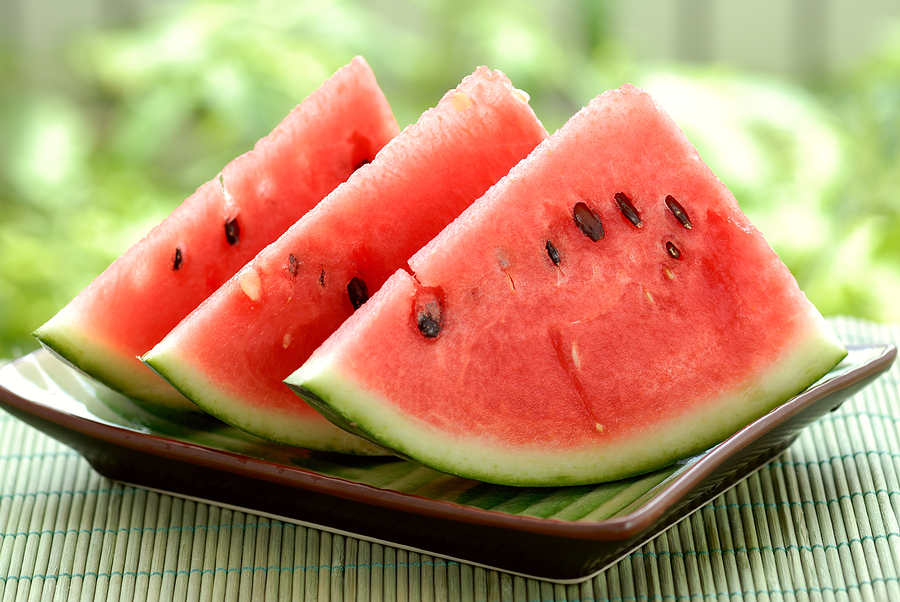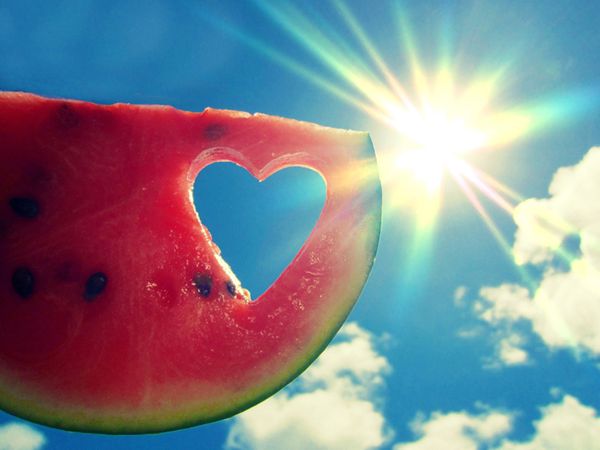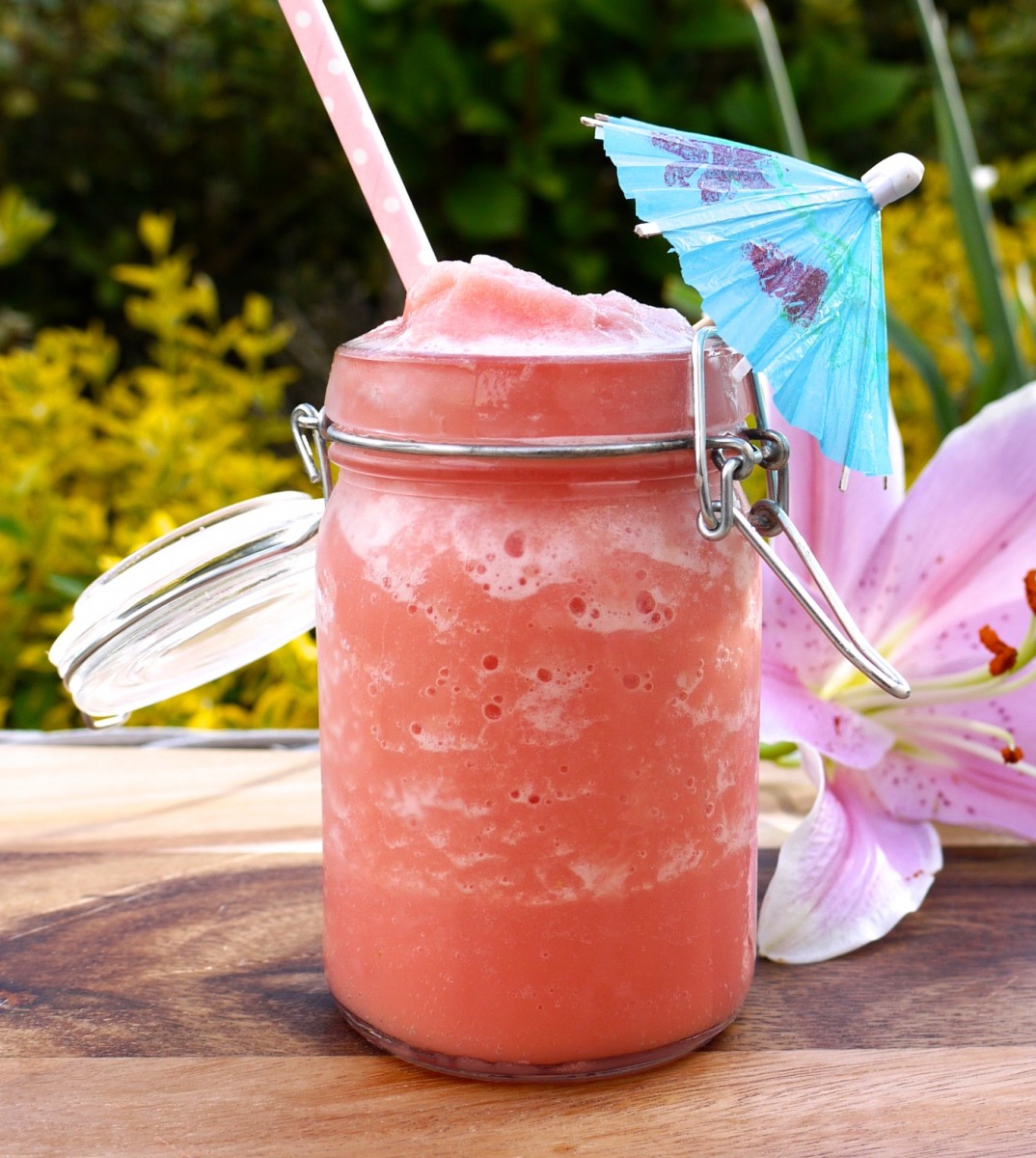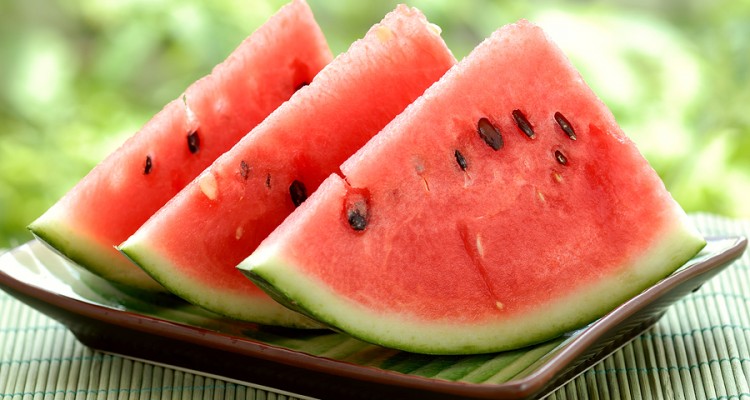With just 48 calories per cup and packed with water, this refreshing fruit makes a perfect healthy snack, and especially during the summer months. Watermelon make a great weight loss fruit, as it’s low in sugar, and high in antioxidant vitamins A and C. It’s also a good source of the amino acid citrulline, with about 250 millligrams of citrulline per cup of watermelon. This helps the body produce another amino acid, arginine. Arginine can help lower blood pressure and reduce the risk of cardiovascular disease.

Its name gives away the very high water content of about 92%, which is one of the reasons why its such a deeply cleansing diuretic food and delicious way to minimise puffiness under the eyes. It’s also one of the most detoxifying fruits there is, leaving a highly alkaline residue in your blood and cells as it’s metabolised.
According to research, watermelon aids the liver in processing the toxic nitrogen waste product ammonia, by changing it into urea which is safe to be excreted via the kidneys.
The phytochemicals in watermelon like lycopene and carotenoids, plus its antioxidant flavonoids lutein, lycopene, zeaxanthin and cryptoxanthin, all help to protect your cells, tissues and organs from free radical damage for healthier and younger-looking skin. Also found in tomatoes, lycopene is especially important for a healthy heart and for bone health, and studies suggest it may protect the body from cardiovascular disease and some forms of cancer.
The lycopene in watermelon has been well-documented as a powerful anti-inflammatory nutrient and an excellent source of vitamin C. Most people associate vitamin C with protection against the common cold, and it’s essential for a strong immune system. But vitamin C is also needed to help make the connective tissues, collagen, which keeps your skin looking firm and plump.

If you’re happy to eat the seeds in watermelon, then you will be benefiting from their small amounts of iron and zinc, two more important nutrients for strengthening your immune system and supporting energy levels. It even offers around 1 gram of protein per 24 seeds.
Watermelon is packed with beauty-boosting minerals including potassium, magnesium and copper. In fact, copper is important to all of the cells in your body and plays an essential role in preventing grey hair, as copper deficiency can be one of the primary causes of greying hair. Magnesium is know as nature’s very own sedative, helping to calm your nervous system and relax tense muscles, while potassium is important for normal and healthy blood pressure.

When you buy a watermelon, it’s best to make sure that it’s fully ripe when you eat it. Not only will it taste sweeter, but research shows that there is a marked jump in the concentration of lycopene in pink watermelon flesh, as opposed to slightly underripe white-pink flesh. Their content of beta-carotene also increases as the fruit ripens, and this is an important anti-oxidant nutrient for preserving a fresh, bright and youthful complexion.
Watermelon is so refreshing in light salads, and makes great ice-pops, though I love to enjoy its alkalising powers with a large glass of my Frozen Watermelon Slushie. When frozen for 2-3 hours and then blended with a little unsweetened almond milk, watermelon makes a great refreshing drink, as the sweetness of the fruit goes well with the creaminess of the almond milk.


